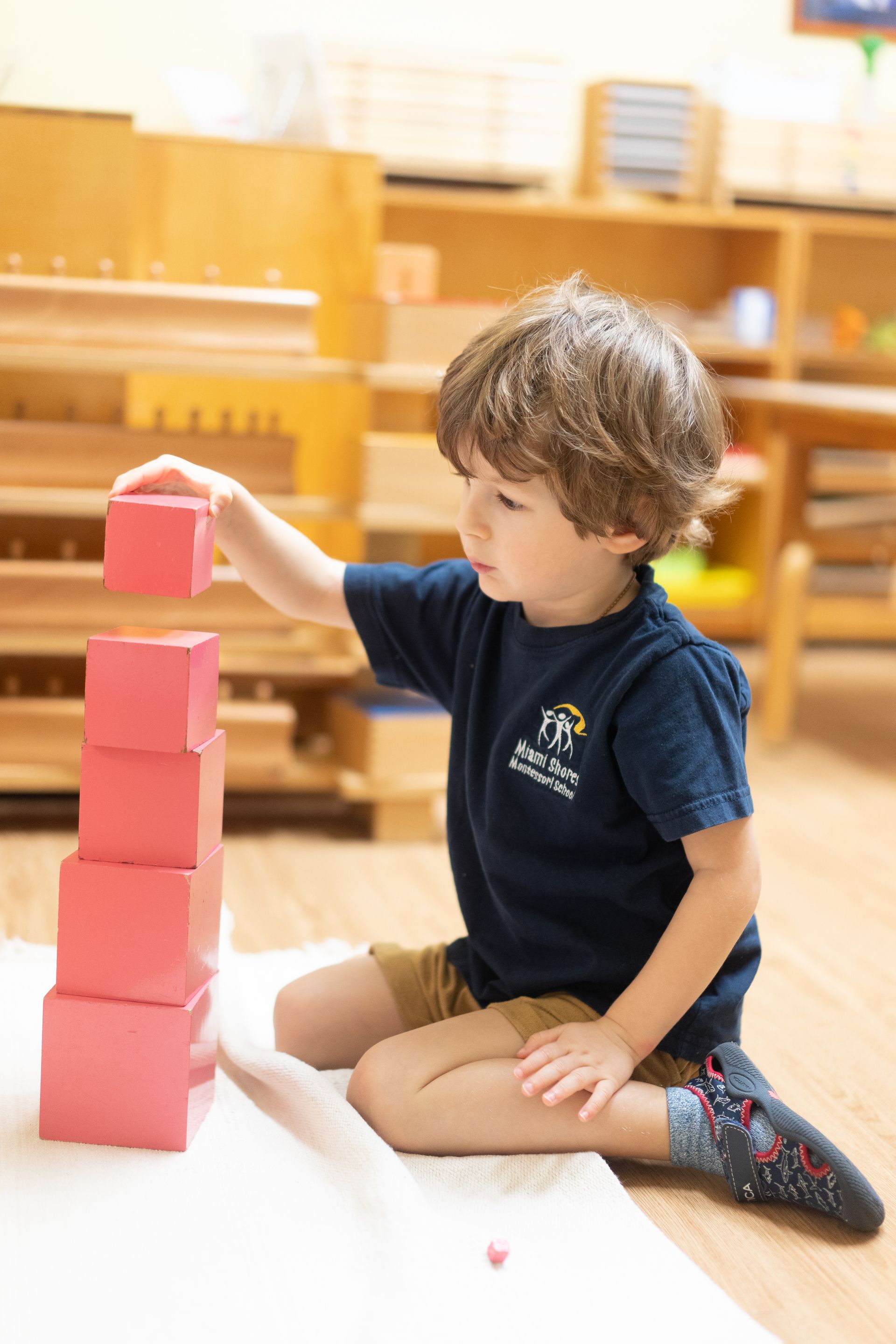Why Montessori?
“The child is capable of starting on the road to independence from the first days of life.”
— Maria Montessori
An education that meets the child with purpose, not pressure.
Montessori education is built on the understanding that every child develops at their own pace. It is not a system built around deadlines or test scores, but rather a thoughtful and respectful approach to learning that honors each child’s individual rhythm.
In a Montessori classroom, children are not expected to move in unison through the same lessons at the same time. Instead, they are guided through a carefully prepared environment by trained educators who observe, support, and introduce new challenges as the child is ready. When given time, space, and trust, children flourish—not only academically, but socially, emotionally, and personally.
A Community of Connection
Montessori education extends beyond academics. It is a way of being—with others and within the world. At our school, we cultivate a strong sense of community between families, guides, and students. We offer spaces for parent education, encourage collaboration among staff, and create opportunities for children of all ages to learn from and support one another.
We believe meaningful relationships are essential to a child's growth, and we build those relationships intentionally—through grace, courtesy, shared responsibilities, and communication.
More Than Academics
Montessori is often described as “whole-child education,” and that is exactly what it offers. Academic progress is balanced with emotional awareness, physical movement, creativity, cultural understanding, and real-world life skills. Subjects are woven together to reflect the way children naturally explore. Instead, lessons flow through an interconnected curriculum that reflects the way children naturally learn.
Practical Life work, art, music, and nature are not add-ons—they are foundational. Children learn how to care for their environment, resolve conflict with empathy, and navigate challenges with resilience.
A Strong Academic Foundation
While Montessori does not rely on grades or testing, academic excellence is built into the structure of the method. Children are introduced to math, language, science, and cultural studies through hands-on, didactic, and sensorial materials that allow them to internalize abstract concepts at a deep level.
Dr. Montessori observed that children go through “sensitive periods”—windows of time when they are especially open to acquiring specific skills. When the environment is aligned with these natural developmental stages, academic learning unfolds with joy and confidence. It is not unusual to find a child reading by four, solving complex math by six, or exploring geometry and biology by nine.
A Vision Beyond the Classroom – A Vision for Peace Education
Dr. Montessori believed education was a path to peace. She envisioned classrooms not just as places for academic growth, but as training grounds for compassion, respect, and cultural understanding. Her vision remains vital today.
Montessori children are taught to care for themselves, for one another, and for the greater world. They are introduced to diverse traditions, global geography, and environmental stewardship. They leave our school not only well-prepared for future learning, but with the character and awareness needed to contribute meaningfully to their communities.

